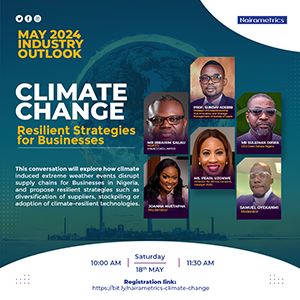Kenya’s visa-free entry to all foreign nationals has a step-by-step guide to its new Electronic Travel Authorization (eTA) system.
Nairametrics reported earlier that Kenya implemented a new semi-automated Electronic Travel Authorization system (eTA), replacing the traditional visa system. This became effective as of January 1, 2024.
This new era of travel grants visa-free entry to individuals regardless of their nationality, for tourism or business stays of up to 90 days. However, airline carriers are forbidden from permitting passengers without a valid eTA to board. Regardless of nationality, passengers are no longer required to complete paper forms on the plane or upon arrival.
Details of the visa waiver
Kenya’s decision to offer visa-free entry reflects a significant shift in its approach to tourism and business travel, emphasizing its commitment to creating a welcoming environment for international visitors.
Despite a brief delay of five days, Kenya celebrated the arrival of the first group of foreign tourists on Friday, January 5, under an innovative and streamlined entry system.
This system, crafted to simplify and expedite the entry process, is strategically designed to attract a greater number of international visitors, contributing to substantial growth in Kenya’s flourishing tourism sector.
Here are the steps for getting your ETA in 3 days:
Steps to getting your eTA
- Step 1 – Go online: Navigate to the Official Government website (etakenya.go.ke) for ETA and create an account.
- Step 2 – Complete the Form: Anticipate inquiries regarding your journey, personal information, and travel documents, including your passport (which should be valid for a minimum of six months beyond your arrival date, with an empty page).
- Step 3 – Payment and Waiting: The ETA comes with a fee of USD 30, and the processing period typically spans around three business days, although it may occasionally extend. If you’re eager, expedited processing is an option for an additional charge.
Required documents and processing times
- Those applying for an ETA must furnish the necessary documents, including a passport valid for at least six months beyond the arrival date, with one blank page.
- Selfie or passport-type photo
- Confirmation of accommodation booking(s) and personal details is mandatory
- Some applicants may need additional documentation, such as proof of financial assets and a scheduled exit plan.
- Contact information (Email address and phone number).
- Details of arrival and departure itinerary
- Credit card, debit card, Apple Pay or other means of payment
- Also based on citizenship and travel history, visitors will also need to provide their yellow fever certificates and other vaccination(s) or test results certificates.
- While most ETAs are processed within three business days, the duration may vary depending on the applicant’s citizenship and other factors. Expedited processing is available for an additional fee.
- Successful applicants will receive an email confirming the issuance of their ETA. This confirmation should be printed and presented to immigration officers upon arrival or saved on a related mobile app.
After obtaining your ETA
- Print or Save: Ensure your ETA is easily accessible, either in print or saved on your phone, as you’ll need to present it to immigration officers upon arrival.
- Pack essentials: Remember to bring standard travel necessities such as your passport, flight confirmation, and proof of accommodation. Business travellers should include an invitation letter and company registration document.
ETA validity and renewal
Unlike traditional visa programs with multi-year validity, the ETA for Kenya is only valid for a single trip. Travellers must obtain a new ETA for each subsequent visit to the country.
Transition for e-Visas
Travelers who acquired e-visas before the ETA launch can continue using them until expiration. However, note that the e-visa platform will be decommissioned, reflecting the country’s shift away from visa requirements.
As Kenya embraces this visa-free initiative, travellers are encouraged to stay informed about evolving regulations

















Is it possible to extend stay beyond three months?